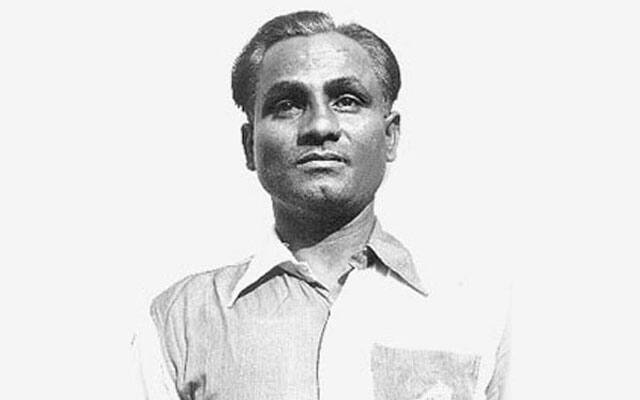
Manushree Chaumal
Fifty years ago, India breathed hockey. The India that breathes cricket today, considered hockey as its religion then. What Sachin Tendulkar is to cricket now, Dhyan Chand was to hockey then.
Ever since the induction of the sportspersons for nomination to the Bharat Ratna, a massive debate has engaged the nation - Who deserves the Bharat Ratna more, batting stalwart Tendulkar or Dhyan Chand? There is no doubt that Tendulkar’s contribution to Indian sports is phenomenal, but it is high time that Dhyan Chand is given his due credit.
The cricket ‘know-it-all’ generation, needs to know Major Dhyan Chand, they need to know his contributions, to make a fair comparison. They need to know India’s wizard of hockey, the magician who let India scale the summit in the game. They need to know why hockey was once upon a time, lifeline of millions of Indians. Simply put, they need to know the legendary Dhyan Chand.
Dhyan Chand in his biography `Goal` stated that hockey, the most beautiful and intelligent human game was `religion` for him. The lines may be simple, but they indicate Dhyan Chand’s devotion and dedication for hockey.
Dhyan Chand, undoubtedly, is one of the finest sportsman the world has produced. Born on August 29, 1905 in Allahabad, his real name was Dhyan Singh. The British officers started calling him Dhayn Chand because he used to practice hockey under moonlight. During his childhood, he used to cut branch from a tree, remove the leaves and use it as make-shift hockey stick.
At 15 years of age, he joined the Army as sepoy, as most of his family members were in the Army. It was during the Army’s hockey tour to New Zealand in 1926 that Dhyan Chand realised his potential as a hockey player. There was no looking back since then. The team played 21 matches there, won 18 matches, drew 2 and lost 1.
This was the beginning of the golden era of Indian hockey - the period from 1928 to 1956 when India won six successive gold medals in the Olympic Games.
In 1928 Olympic Games in Amsterdam, Dhyan Chand was a part of the Indian hockey team. He astounding display of ball-juggling catapulted him to instant success. In the same year, in a match of Punjab Infantry tournament in Jhelum, Dhyan Chand’s side was losing the match. With only four minutes to go, an officer called out to him, "Come on Dhyan! Do something about it." And lo! The magician, just in nick of time, scored three goals in four minutes and led his side to victory. This was the iconic match where he earned himself the title of ‘The Wizard’.
He first captained India in 1934 in the Western Asiatic Games in Delhi and later in 1936, he successfully captained India in the Olympic Games.
After the 1932 Los Angeles Games, India had a tally of 338 goals in hockey out of which Dhyan Chand scored 133. In 1935, during the tour of New Zealand and Australia, he scored 201 goals in 48 matches. In his career, he scored 570 goals in 185 appearances.
Such was his popularity that once in 1947-48, Indian Hockey team was invited to East Africa for a hockey tournament only on the condition that the ‘then retired’ Dhyan Chand accompanied the team as a captain. This was when he was 42 years old. Astonishingly, Dhyan Chand not only went there to play the tournament, but also scored 61 goals in 22 matches.
There are also tales that seeing him play, Adolf Hitler offered him German citizenship. Sir Donald Bradman famously said, ‘He scores goals like runs in cricket.’ Such was his breathtaking ball juggling skills that people once claimed that he does black magic on field!
He was honoured with the Padma Bhushan in 1956. He breathed his last on December 3, 1979 in Jhansi.
Perhaphs, they don’t make `Dhyan Chands` anymore. Perhaps that is also the reason why the Gen-X fails to understand why hockey is India`s national game.
We leave you some of his lines from his autobiography… “Often situations arise during a game when you are provoked. But you should exercise tolerance and show sportsmanship by putting restraint on your temper, and then the game will go on serenely as if nothing has happened. But if you take one false step, the field becomes an ugly scene. You lose your value both as a player and as a man.”






